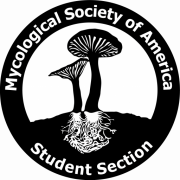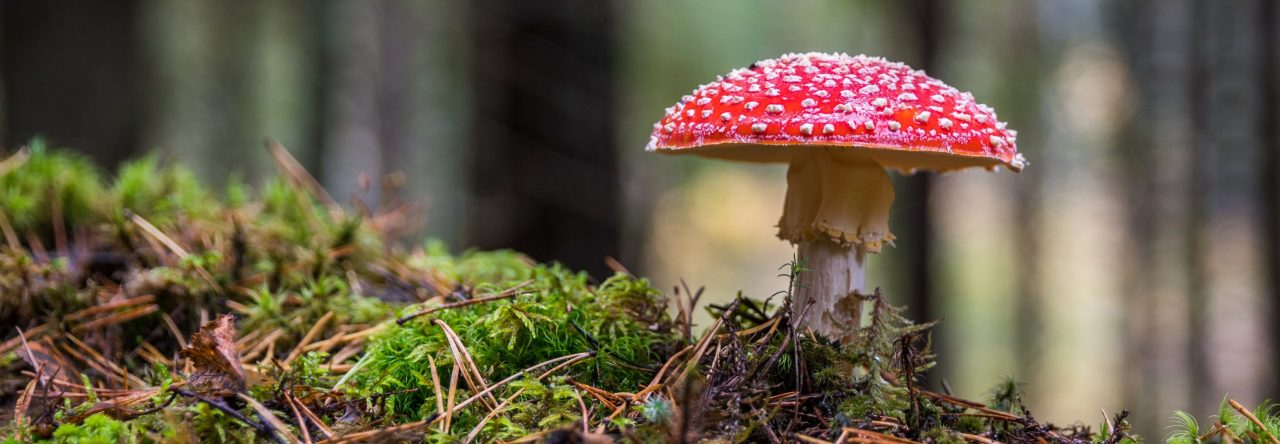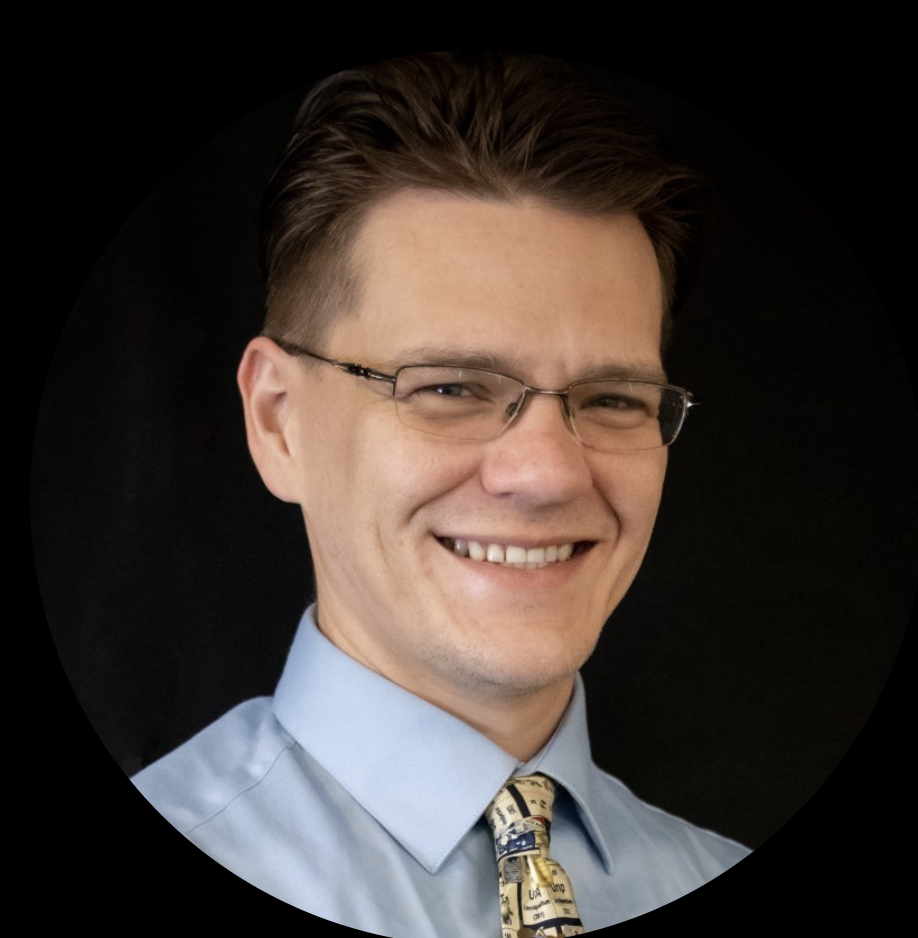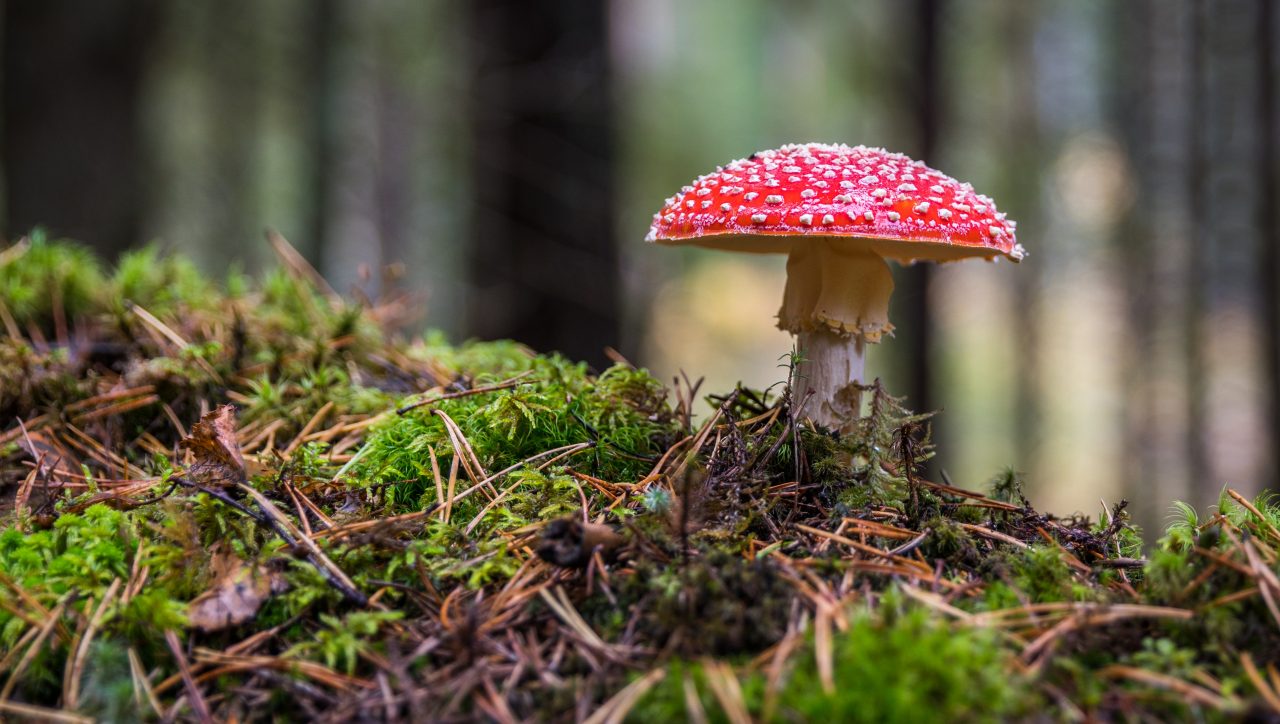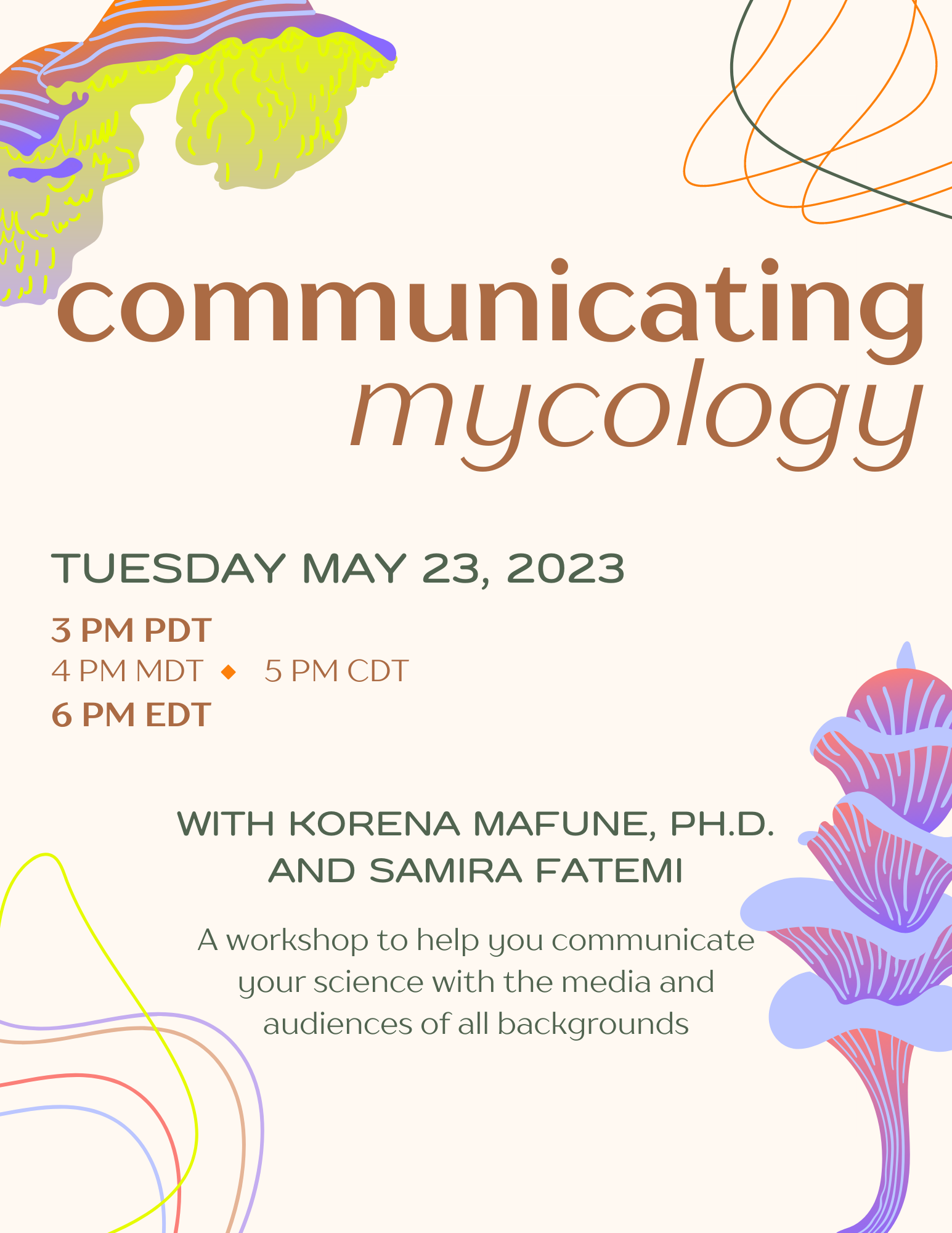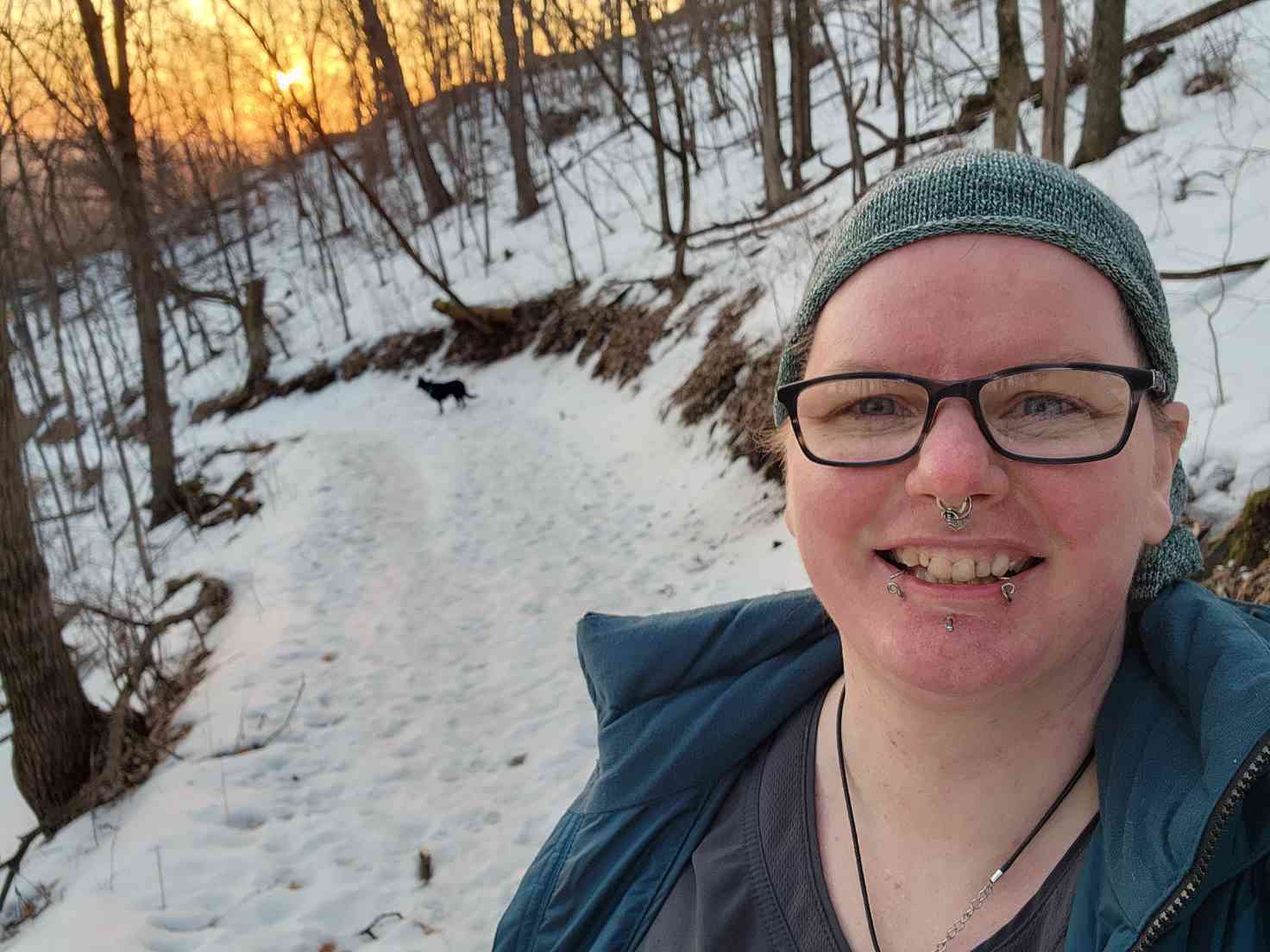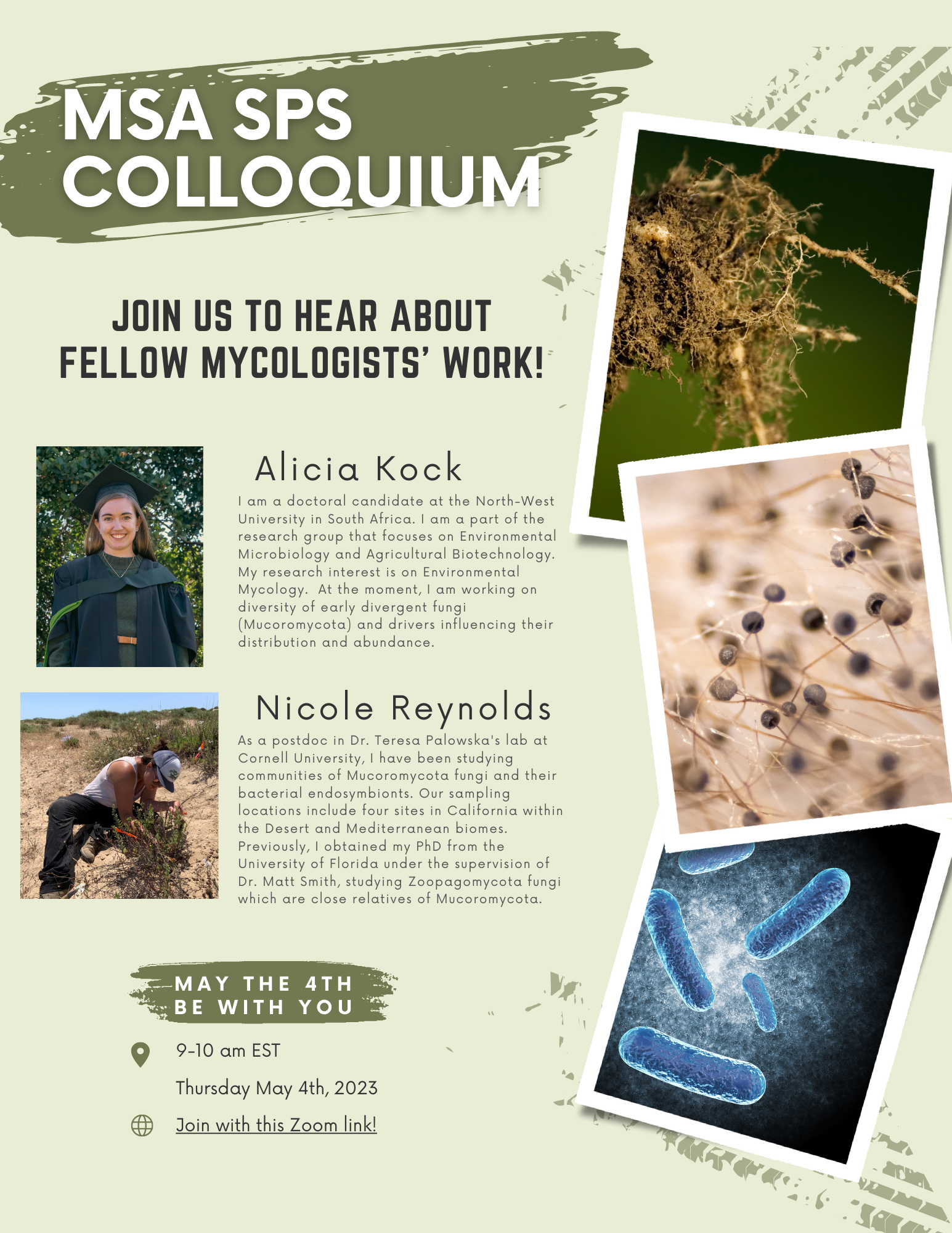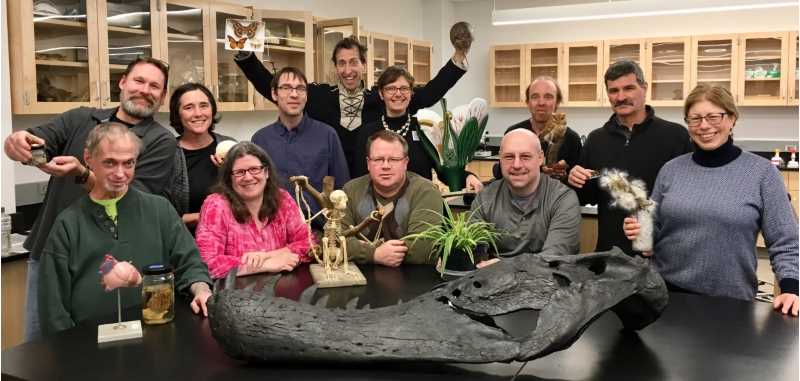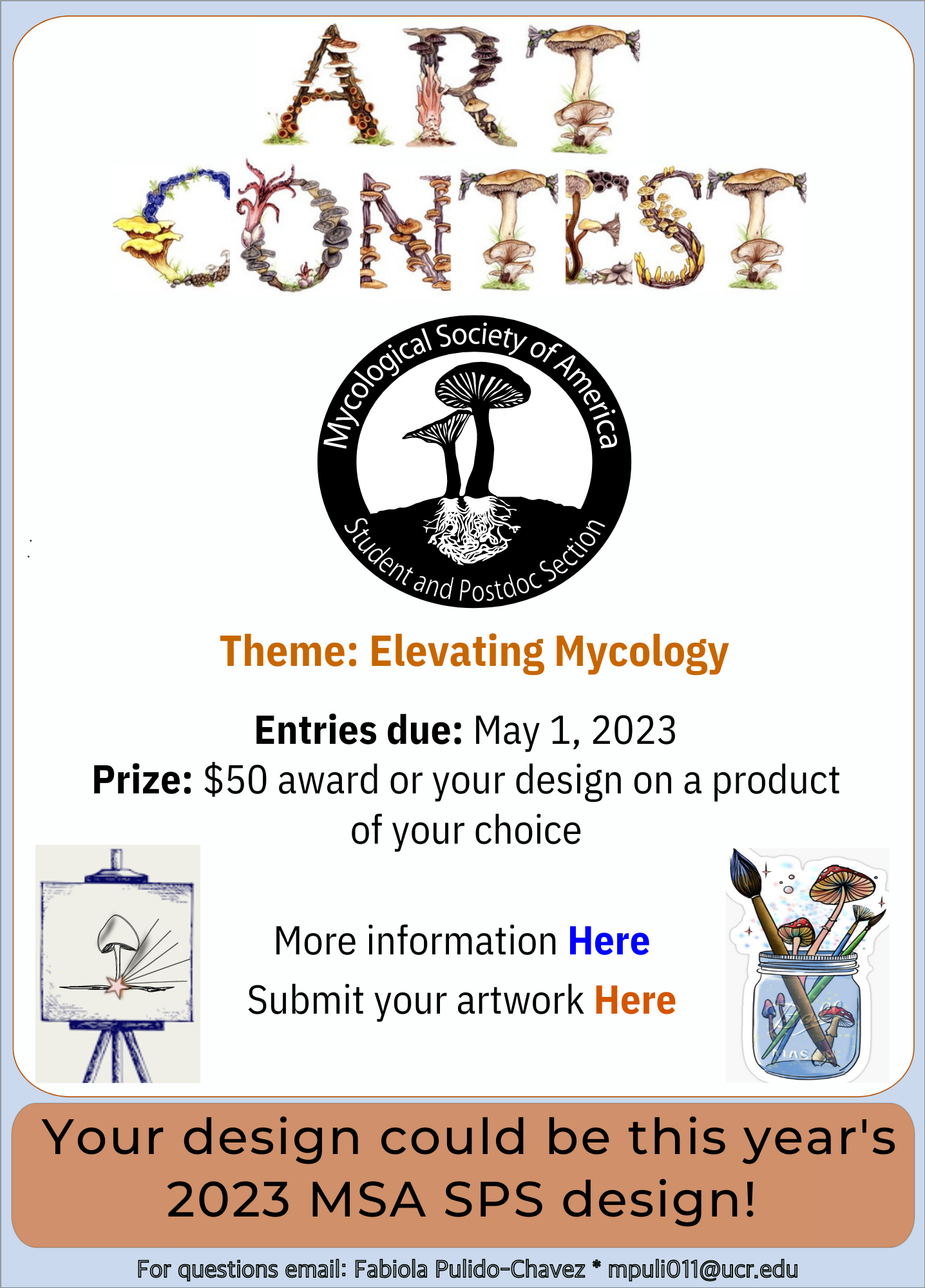The Mycological Society of America (MSA) – Student and Postdoc Section is excited to announce our annual Fungal Art Contest open to ALL members of the MSA community (students, post-docs, professors and fungal enthusiasts). Moreover, to raise awareness of the importance of elevating diversity in mycology, MSA SPS has partnered with MSA-Diversity, Equity, and Inclusion (DEI) and have created two separate entries for the 2023 Art contest (see below).
Goal: The winning design(s) will be featured on this year’s MSA-SPS merchandise which will be sold at the MSA 2023 annual conference and on our online swag store (bonfire). All proceeds from this sale will be used for student recruitment and to fund the MSA-SPS student membership scholarship.
Theme: Elevating Mycology
Submissions: Open from March 1st – May 12th 2023
Winners will be announced in the end of May 2023
Submit your designs to this Google Form
Award: Winners will be given a $50 dollar gift card or one item of their choice with their design. Furthermore, the winners artwork will be this year’s MSA-SPS design and will be showcased in our booth at the 2023 MSA conference in Arizona.
Rules and expectations for the competition:
Open to all artists (students, professors, postdoc) and fungal enthusiast
The artwork has to be an original piece
- Art categories
- MSA-SPS
- Open design (Feel free to be creative and depict any of your favorite things about mycology)
- Two submission options
- Color limited (<4 colors)
- Color unlimited (express yourself)
- MSA-SPS & DEI: Importance of diversity for mycology and the mycological society
- Design must include artwork depicting the importance of diversity to mycology.
- Two submission options
- Color limited (<4 colors)
- Color unlimited (express yourself)
- Method of entry: Art submission can be made here
- File name: CategoryName_YourName_ArtPieceTitle.pdf
- Please include a small description of your art piece during submission
- Please upload a high-resolution image of your artwork
- Ensure images are in full color (see specifications below), not blurry, and artwork should be signed.
- Requirements:
- Design should be your original artwork.
- Submissions should be made as a single pdf file.
- Please note that there are 2 categories per section, one category is color limited (< 4 colors). This design will be used for multiple items including t-shirts, sweaters, totes, etc.
- The second category is color unlimited and can include as many colors as the artist desires. If selected, this design will be used for smaller items, such as cups, stickers, notebooks, magnets etc.
- If your design is selected as the winning design, the design should then be submitted as a final “.svg” file (more information will be provided to the winner)
- Winners will be announced at the end of May 2023
- If selected as the winner, submit a picture and small bio to include in Inoculum and to have on our booth at MSA 2023 conference.
- The winners will produce finished art according to the specifications in the entry call.
- Artwork will not be altered in any way without the artist’s express permission.
All entries and rights to the artwork remain the property of the artist unless a separate written transfer and payment for the original has been negotiated, but we have the right to use the image for merchandise, as stated above.
If you have any questions, please feel free to contact our merchandise chair,
Fabiola Pulido-Chavez at mpuli011@ucr.edu

